news
Theft of public funds wrecking educational, health sectors — Osinbajo
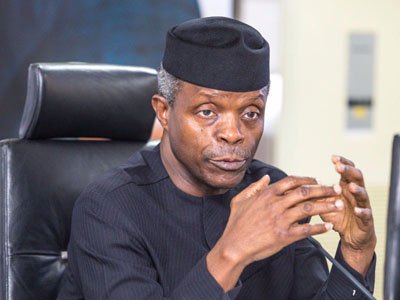
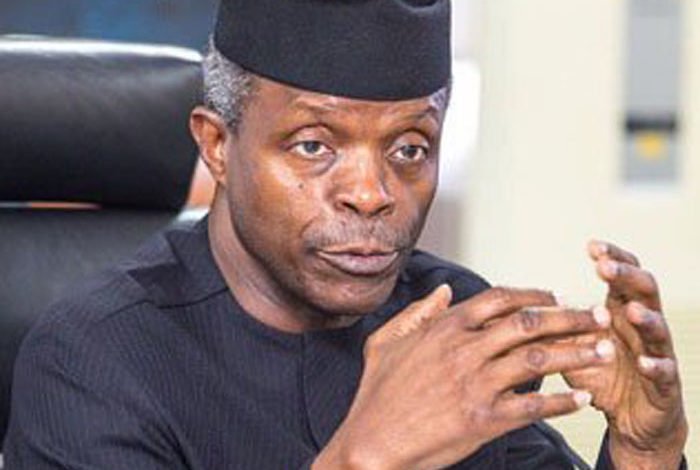 …laments fight against corruption stalled without severe consequences
…laments fight against corruption stalled without severe consequences
I didn’t write memo seeking to leave APC — Osinbajo
VICE President Yemi Osinbajo, on Tuesday, blamed the slow developmental pace of the country’s educational and health sectors on continuous theft of public funds.
This was as he said all efforts invested overtime to fight corruption may never yield any result if not backed with severe consequences.
Osinbajo spoke at the public presentation of the Integrity Club and Zero Tolerance Club Manuals organised by the Economic and Financial Crimes Commission, EFCC, held at Model Secondary School, in Abuja.
The Integrity Club and Zero Tolerance Club Manuals is an initiative by the EFCC to serve as an instrument to inculcate the spirit of integrity and to serve as guidance in raising a more ethically grounded generation of Nigerians.
He said: “Today when you hear yahoo, yahoo, you will find out that there are people who justify it, saying it is because they don’t have money or it is because they are bored that’s why they are into it. No, that’s not true. There are many poor young people all over the world in different countries.
“The difference is the consequence. If you know that you will be caught and dealt with, you will not do it and you must also recognise that it destroys the reputation of your country and that reputation is important because you want to go abroad to study; because you want to do business abroad and do business with people. If the only thing people have ever heard is that these people are 419. If that’s the only reputation that there is, you are in trouble.
“Every public officer who steals robs the Nigerian society of funds, of health care, and education. Every time a public officer steals money whether the man is from your tribe or from your village or not because people excuse stealing when it comes from their own part of the world, and say it is ok after all it is my brother or sister but never forget that everybody, every public officer that steals money makes it very difficult for you to access good education, good health care, good roads, etc because public money is not for private pockets, it is meant for the public good, it is meant for public infrastructure. So, anybody pocketing public resources does harm to the country and the future and to all of the young people in our country.”
He, therefore, called on the Nigerian youths to join in the fight against corruption, pointing out that they are significant players in the nation’s developmental process.
“So, I want to say to the young people here in particular that you represent the army that must fight corruption, not because it seems like a nice thing to do, no, because your future depends on it.
“The reputation of your country is all that you will have in the next few years. Whatever you want to do, it is that reputation and those who destroy the reputation of the country are not doing you good. They are doing you a great evil. You must ensure that you join the army to fight corruption, to fight dishonesty because it is simply dangerous. Not just for you but for the entire society and for the future”, he said.
On his part, the Executive Chairman, EFCC, Abdurasheed Bawa, during his remarks said it was imperative for school children to get acquainted with issues concerning economic and financial crimes.
He added that the Integrity Club and Zero Tolerance Club Manuals would not only imbue a culture of integrity in the formative years of youths and children but would expose them to the need for honesty, transparency and accountability in their dealings.
He said: “The choice of school children and youths as torch-bearers in this important crusade is informed by the fact that they are not ely vulnerable to the effects of economic and financial crimes but retain the potential of breaking with the past years of decadence, to deliver the much cherished destiny of our nation as a corrupt-free society.
“Consequently, we have designed programmes and activities aimed at nurturing a culture of integrity in the formative years of this young population. Two of such programmes are the EFCC Integrity Club for primary schools and the Zero Tolerance Club for tertiary institutions.
“The Clubs are designed not only to improve children and youth understanding and sensitivity to the issues of economic and financial crimes but as a deliberate intervention to imbue them with values which underpin integrity, honesty, transparency and accountability to influence their behavior and character formation.
“Some of the activities through which we have sought to achieve this value orientation include but are not limited to the following rules: plays, visual arts, creative writing, poetry, games, dramas, lectures, workshops, music shows, road walks, etc.”
He, however, called for partnership with States Education Boards by mandating all the schools under their supervision to establish EFCC integrity clubs.
He extended partnership calls to Vice Chancellors, Rectors and Provosts of Universities, Polytechnic and Colleges of Education across the country.
news
Opeifa request for the state government to assist the Railway Police and Otti, thanks Tinubu for picking the best material to rewrite Nigeria Railway history

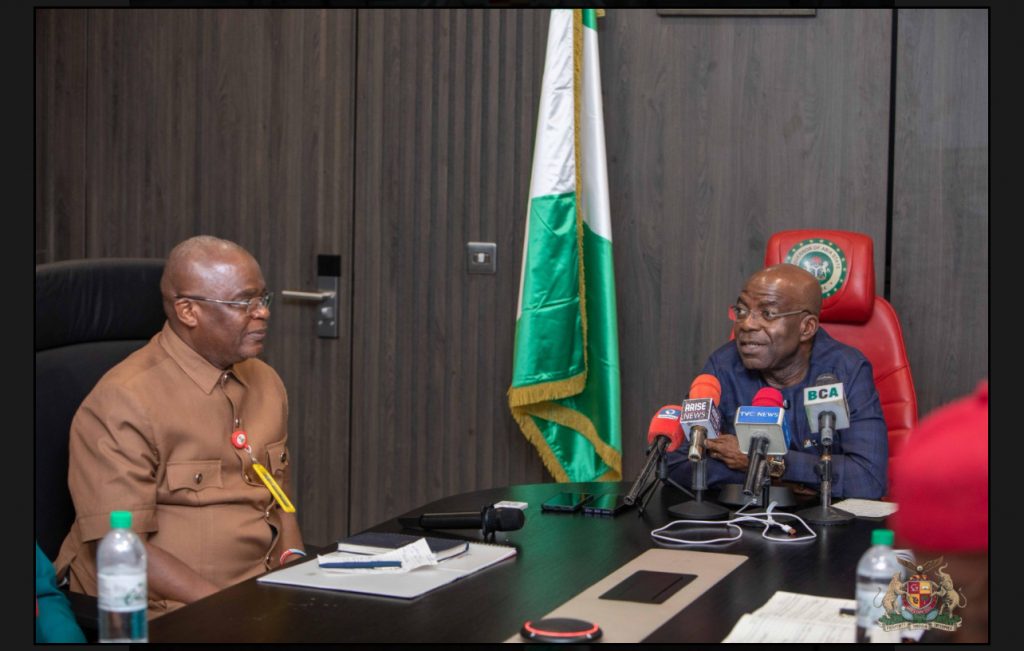 Gov. Otti describes Opeifa as a thorough-bred professional ready to rewrite Nigeria Railway history
Gov. Otti describes Opeifa as a thorough-bred professional ready to rewrite Nigeria Railway history
Lauds President Tinubu for picking the best material to reposition Nigeria’s oldest corporation
A deserving commendation came the way of the Managing Director of the Nigerian Railway Corporation, Dr Kayode Opeifa, as the Abia State Governor, His Excellency, Dr. Alex Otti, described him as an exceptional professional, most suitable to lead the Nigeria’s oldest surviving public corporation.
Governor Otti spoke on Wednesday, at the Government House in Abia State, during a business visit by the MD/CEO of the Nigerian Railway Corporation, as part of his familiarization tour of the Eastern District of the Corporation.
According to Governor Otti: “I have had so many engagements with past leaders of the Nigerian Railway Corporation, you are clearly different and knows the job”. He thanked President Bola Ahmed Tinubu for appointing Dr. Opeifa to lead the Nigerian Railway Corporation, expressing assurance at his ability to deliver.
He thanked the MD/CEO for promising to synergize with the Federal Ministry of Transportation, and the State Government to see that the transformation of the transportation system in Umuahia is achieved. According to the Governor, “Umuahia Bus terminal is progressing rapidly and we felt that it is important to replicate what we have in Paignton, United Kingdom in Umuahia, by linking the train station with the Terminal to enhance intermodal transportation services.
The Governor stated that he was very happy to see that the MD/CEO is committed to taking the track from Aba to Enugu and even beyond. He recalled, with nostalgia how the train had served the people of the state and regretted the downward trends of rain services across the entire South East.
On the MD/CEO’s request for the state government to assist the Railway Police in the state, Governor Otti promised that his government will provide mobility for Aba Railway Police.
He added that the state government is always ready to support the Federal Government institutions as users of such federal institutions are people of the state, adding that his administration cannot differentiate between federal and state government workers.
news
Airlin Advocacy Commissions Jos Office, Targets 7m Members By Next Elections,Says Mohammed Gamawa
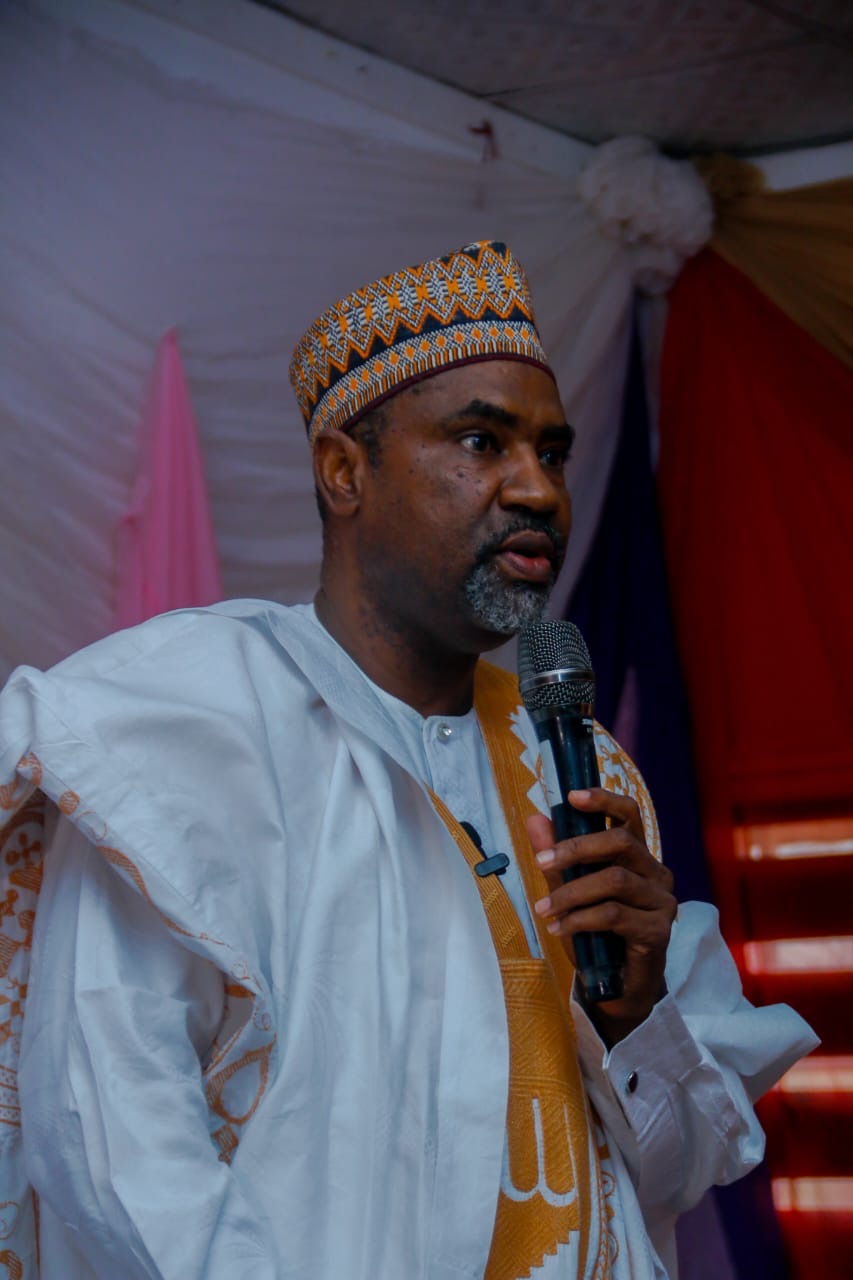
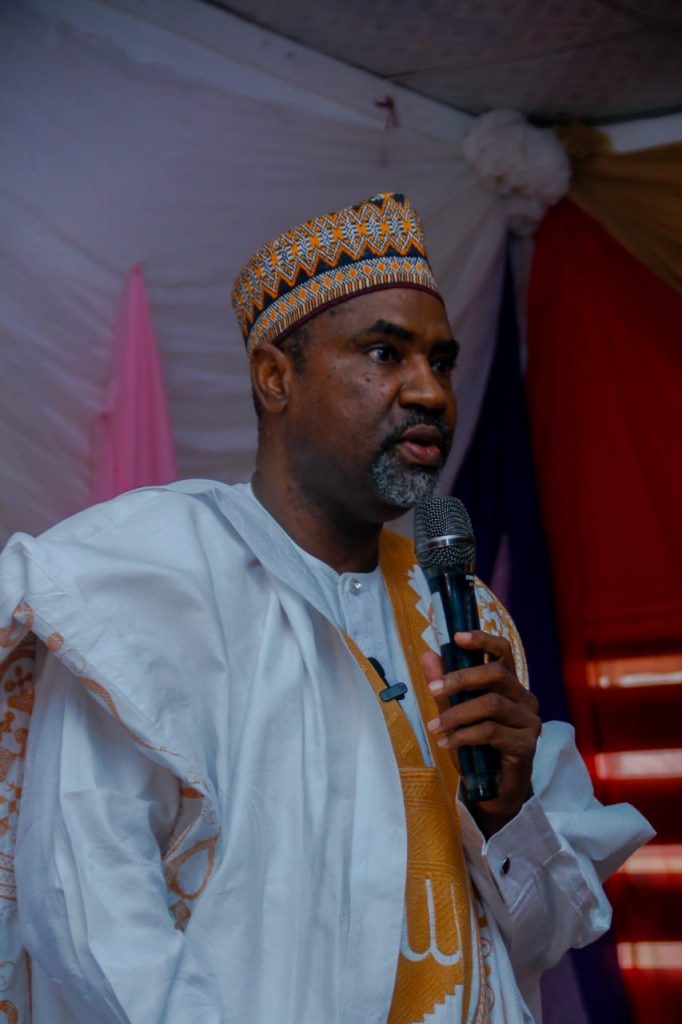 During the inauguration ceremony, the National Chairman of Airlin, Mohammed Gamawa, delivered a keynote address, emphasizing the organization’s commitment to educating Nigerians on their civic rights and responsibilities.
During the inauguration ceremony, the National Chairman of Airlin, Mohammed Gamawa, delivered a keynote address, emphasizing the organization’s commitment to educating Nigerians on their civic rights and responsibilities.
According to Gamawa, Airlin aims to bridge the gap between citizens and the principles of the rule of law by fostering a society where people understand not only their rights but also what is expected of them by the country.
“Our goal is to foster interaction among Nigerians, promote respect for the rule of law, and ensure citizens know their rights and civic responsibilities — such as voting to elect future leaders not based on materialism but based on integrity and competence,” Gamawa stated.
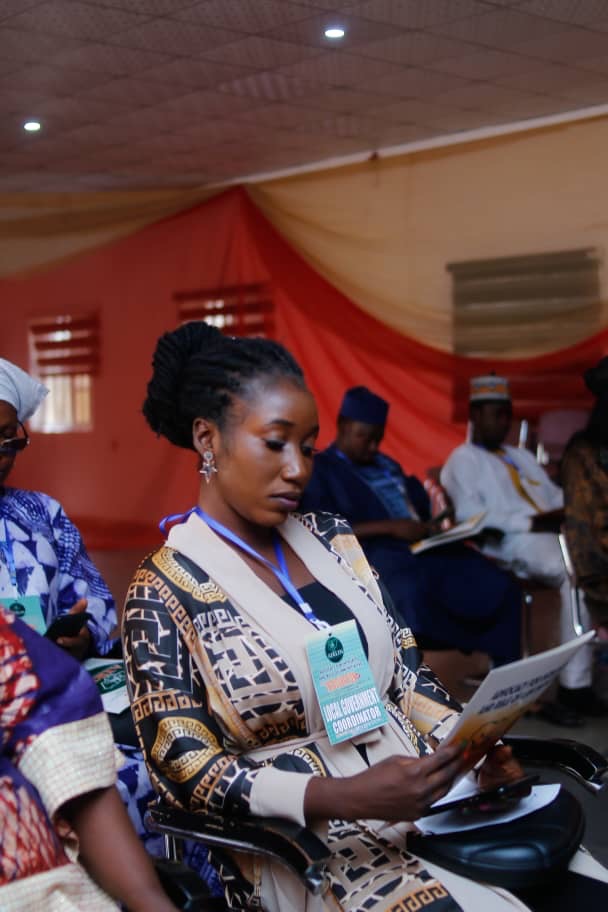
He added that understanding and exercising one’s franchise, especially during elections, must go hand in hand with being law-abiding and fully aware of civil responsibilities.
As part of its mission, Airlin is currently targeting 19 states in Northern Nigeria, with Jos becoming the 15th state to be commissioned.
The ceremony also featured the appointment of state and local government coordinators who will help drive the organization’s grassroots advocacy efforts.
With a current membership base of 2.1 million Nigerians aged 18 and above, Airlin projects a significant growth trajectory, aiming to reach 7 million members before the next general elections.
news
Nothing new in FBI report on Tinubu, says Onanuga
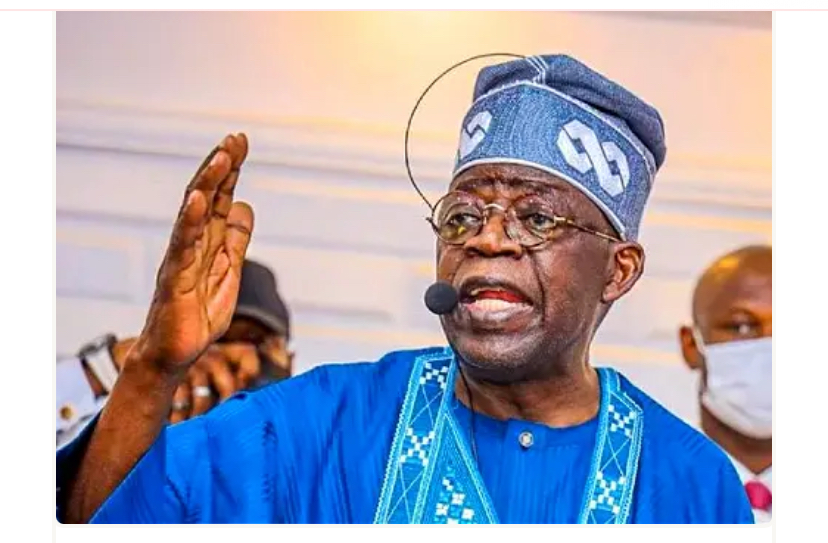
 Senior Special Adviser to the President on Information and Strategy Bayo Onanuga has dismissed a report of a United State (U.S.) court ordering two law enforcement agencies to release information on President Bola Ahmed Tinubu during a “purported federal investigation in the 1990s.”
Senior Special Adviser to the President on Information and Strategy Bayo Onanuga has dismissed a report of a United State (U.S.) court ordering two law enforcement agencies to release information on President Bola Ahmed Tinubu during a “purported federal investigation in the 1990s.”
In a tweet on his verified X handle, Onanuga told those agitated by the directive that there would be nothing revealing in the anticipated report.
In an April 9 ruling, District Court for the District of Columbia Judge, Beryl Howell ordered the Department of State, Federal Bureau of Investigation (FBI), Internal Revenue Service (IRS), Drug Enforcement Administration (DEA) and the Central Intelligence Agency (CIA) to release the information to Mr. Allan Greenspan.
The information being sought by Greenspan was classified as “confidential information” generated during a “purported federal investigation in the 1990s.”
Judge Howell said that protecting the information from public disclosure “is neither logical nor plausible.”
Commenting on the ruling, Onanuga said: “There is nothing new to be revealed. The report by Agent Moss of the FBI and the DEA report have been in the public space for more than 30 years. The reports did not indict the Nigerian leader”, Onanuga said yesterday.
He said that counsel to the President have been “examining the ruling”.
-

 news4 years ago
news4 years agoUPDATE: #ENDSARS: CCTV footage of Lekki shootings intact – Says Sanwo – Olu
-

 news1 year ago
news1 year agoEnvironmental Pollutions : OGONI COMMUNITY CRIES OUT, THREATENS TO SHUT DOWN FIRSTBANK,SHELL OIL COMPANY OPERATIONS FOR NOT PAYING COURT AWARD
-
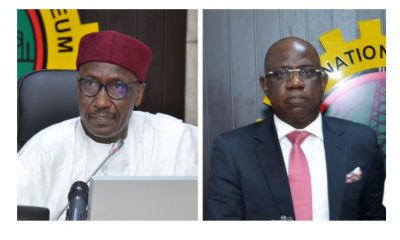
 news3 weeks ago
news3 weeks agoBreaking : TInubu appoints Bashir Ojulari as new CEO group of NNPC and GMD mele kyari get sacked, Says Onanuga
-
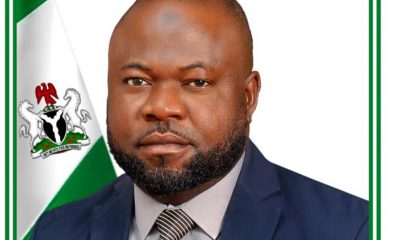
 interview3 weeks ago
interview3 weeks agoNIGERIA MECHANIZED AGRO EXTENSION SERVICE PROJECT, A STRATEGIC MOVE TO ALLEVIATE POVERTY – DR. AMINU ABDULKADIR
-

 news3 weeks ago
news3 weeks agoUpdate : Fubara ordered bombing of Rivers Assembly, I am not under duress I resigned, Says ex-Rivers HoS Nwaeke
-

 news7 days ago
news7 days agoNothing new in FBI report on Tinubu, says Onanuga
-

 news3 weeks ago
news3 weeks agoTinubu commended Nandap for her leadership, extends Comptroller-General tenure till 2026, says Onanuga
-

 news2 weeks ago
news2 weeks agoUpdate : FG confirms continuation of crude, refined product sales in Naira initiative, Says Wale Edu


